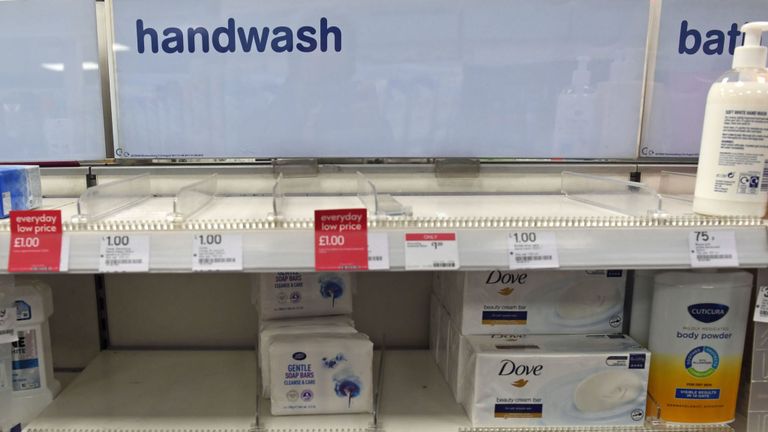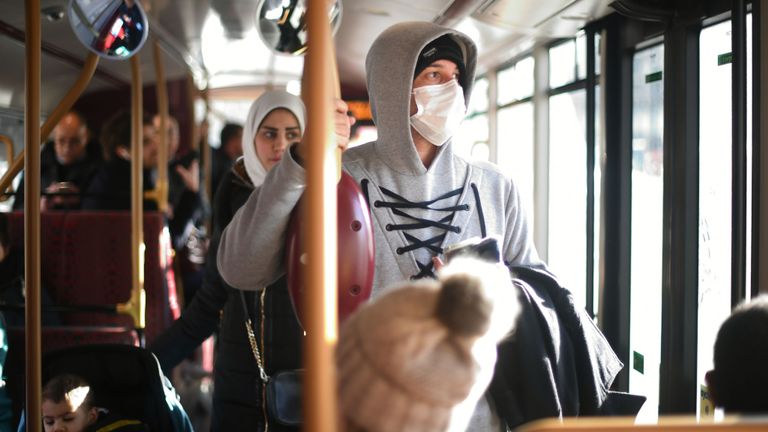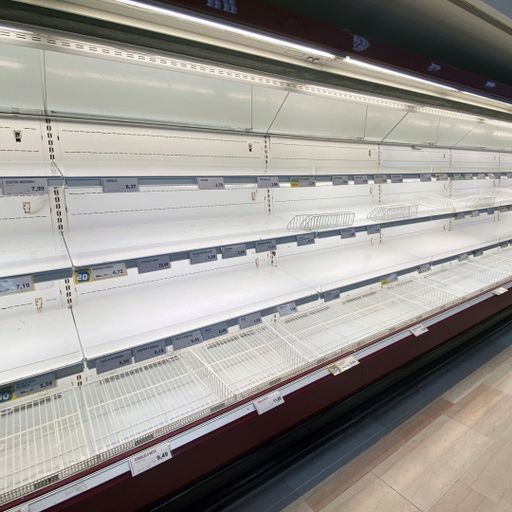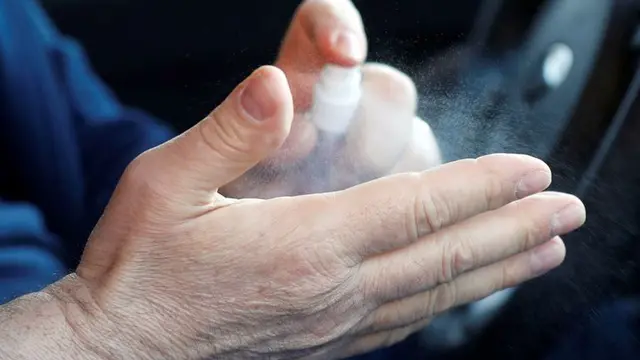DIY hand sanitiser guides are flooding the internet as retailers face coronavirus-related shortages - but experts have cautioned against using them.
Pharmacies have reported a
rising demand for hand sanitiser
and some consumers have turned to the internet for advice on homemade concoctions that could protect them against the virus which 53 in the UK now have
.
Even the World Health Organization has an official guide to 'local production,' titled WHO-recommended Handrub Formulations.

Image:Boots sold out of handwash at Victoria Station in London
But specialists have warned these recipes are not all easy to follow and if done incorrectly could cause more harm than good.
A public health expert from Nottingham Trent University, Professor Robert Dingwall, told Sky News the WHO guidelines were intended for communities who did not have any other options to stay clean amid an
coronavirus outbreak
.
"Clearly [they're for people] in a place that doesn't have access to clean water and sanitation - which won't be true in most developed countries in a sense - and this is what WHO has been talking about, we should really be leaving stocks of sanitiser for people who don't have an alternative," he said.
"And that alternative is high-quality hand washing."

Image:People should wash their hands after touching surfaces such as public transport rails
Professor Dingwall said it was easy to mistake the concentration of alcohol to other substances when making hand sanitiser, which could damage skin and pose safety risks.
"There is also a risk you put it on and then turn on a gas tap and then your hand goes up like a Christmas pudding," he said.
Professor Dingwall said thorough, regular hand-washing was even more effective than store-bought hand sanitiser - and that the average person should be washing their hands six-to-nine times daily.
"We need to re-enforce the message to wash hands as soon as you come into your house and have been holding hand rails on the bus, used the toilet and eaten food," he said.
"If you're around lots of people you could also wear ordinary street gloves," Professor Dingwall added.
Other experts around the world have similar concerns about DIY hand sanitiser.
Listen to "Government plans to tackle domestic abuse and COVID-19 | 3 March 2020" on Spreaker.
**:: Listen to the Daily podcast on **
Apple Podcasts
**, Google Podcasts
, Spotify
, Spreaker
**
Biophysics professor at Johns Hopkins University, Dr Karen Fleming, explained why simple hand-washing is so effective.
"Coronavirus is an 'enveloped' virus, which means that it has an outer lipid membrane layer," she tweeted.
"Basically, it's surrounded by a fat layer. Washing your hands with soap and water has the ability to 'dissolve' this greasy fatty layer and kill the virus."

Image:Washing hands is the most effective weapon against coronavirus, officials say
The WHO guidelines show hand sanitiser can also help if it is has an accurate ratio of alcohol to other materials.
But it has continually reiterated the importance of hand-washing.
The advice comes as major pharmacy retailer LloydsPharmacy says it is "is doing everything we can to ensure availability [of hand sanitisers], despite increasing demand and supply challenges".

UK supermarkets 'draw up emergency plans for major outbreak'
"This includes limiting sales of these products to two per person both online and in store," a spokesperson said.
"Our pharmacy teams are also reinforcing the latest public health guidance, which is for everyone to regularly wash their hands with soap and warm water."
Drug store chain Boots has taken similar measures, limiting customers to two hand sanitisers per purchase and selling out of the product in some stores.
 简体中文
简体中文













